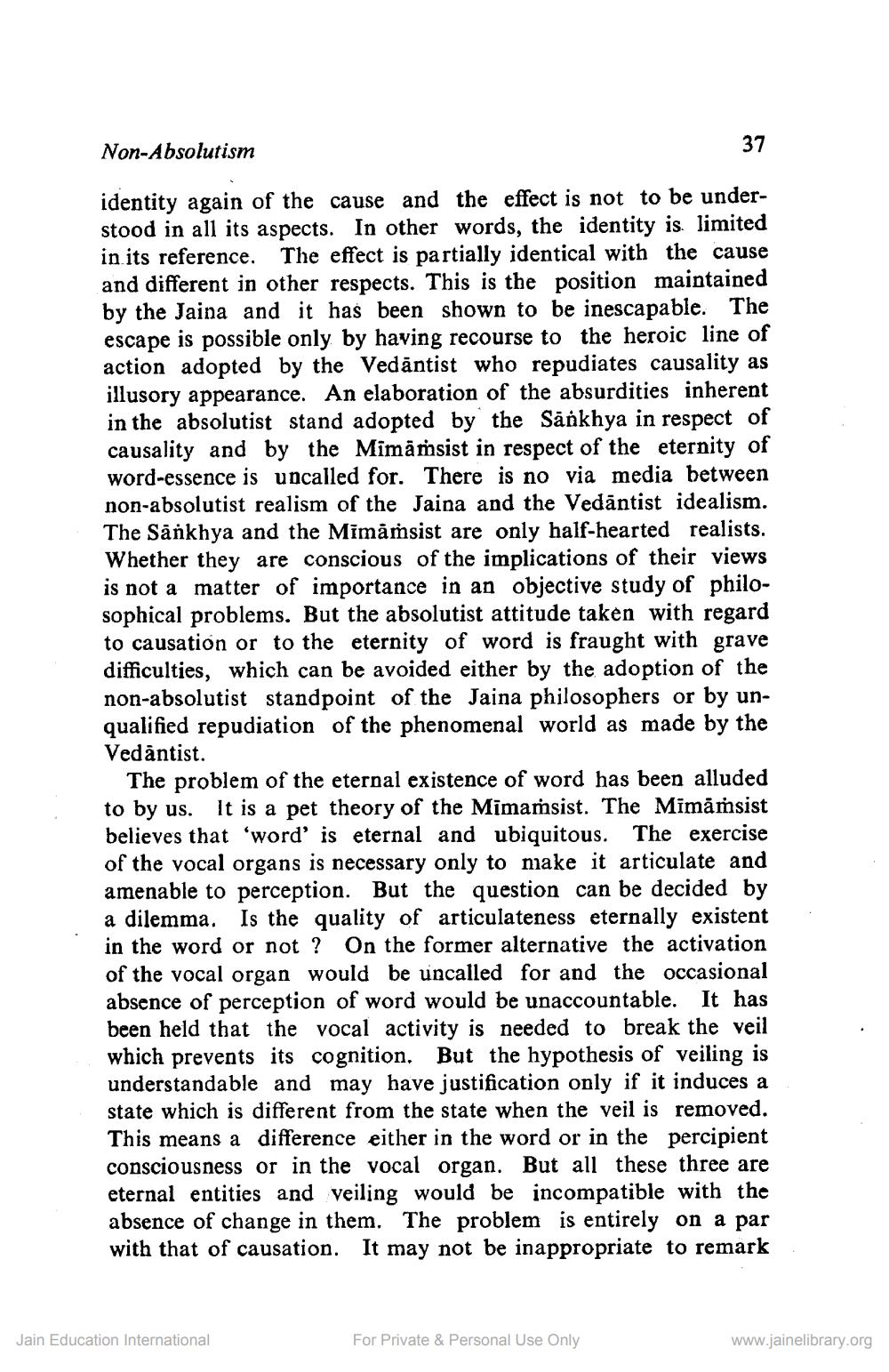________________
Non-Absolutism
37
identity again of the cause and the effect is not to be understood in all its aspects. In other words, the identity is limited in its reference. The effect is partially identical with the cause and different in other respects. This is the position maintained by the Jaina and it has been shown to be inescapable. The escape is possible only by having recourse to the heroic line of action adopted by the Vedāntist who repudiates causality as illusory appearance. An elaboration of the absurdities inherent in the absolutist stand adopted by the Sānkhya in respect of causality and by the Mimāṁsist in respect of the eternity of word-essence is uncalled for. There is no via media between non-absolutist realism of the Jaina and the Vedāntist idealism. The Sankhya and the Mimāṁsist are only half-hearted realists. Whether they are conscious of the implications of their views is not a matter of importance in an objective study of philosophical problems. But the absolutist attitude taken with regard to causation or to the eternity of word is fraught with grave difficulties, which can be avoided either by the adoption of the non-absolutist standpoint of the Jaina philosophers or by unqualified repudiation of the phenomenal world as made by the Vedāntist.
The problem of the eternal existence of word has been alluded to by us. It is a pet theory of the Mimassist. The Mimāṁsist believes that 'word' is eternal and ubiquitous. The exercise of the vocal organs is necessary only to make it articulate and amenable to perception. But the question can be decided by a dilemma. Is the quality of articulateness eternally existent in the word or not ? On the former alternative the activation of the vocal organ would be uncalled for and the occasional absence of perception of word would be unaccountable. It has been held that the vocal activity is needed to break the veil which prevents its cognition. But the hypothesis of veiling is understandable and may have justification only if it induces a state which is different from the state when the veil is removed. This means a difference either in the word or in the percipient consciousness or in the vocal organ. But all these three are eternal entities and veiling would be incompatible with the absence of change in them. The problem is entirely on a par with that of causation. It may not be inappropriate to remark
Jain Education International
For Private & Personal Use Only
www.jainelibrary.org




